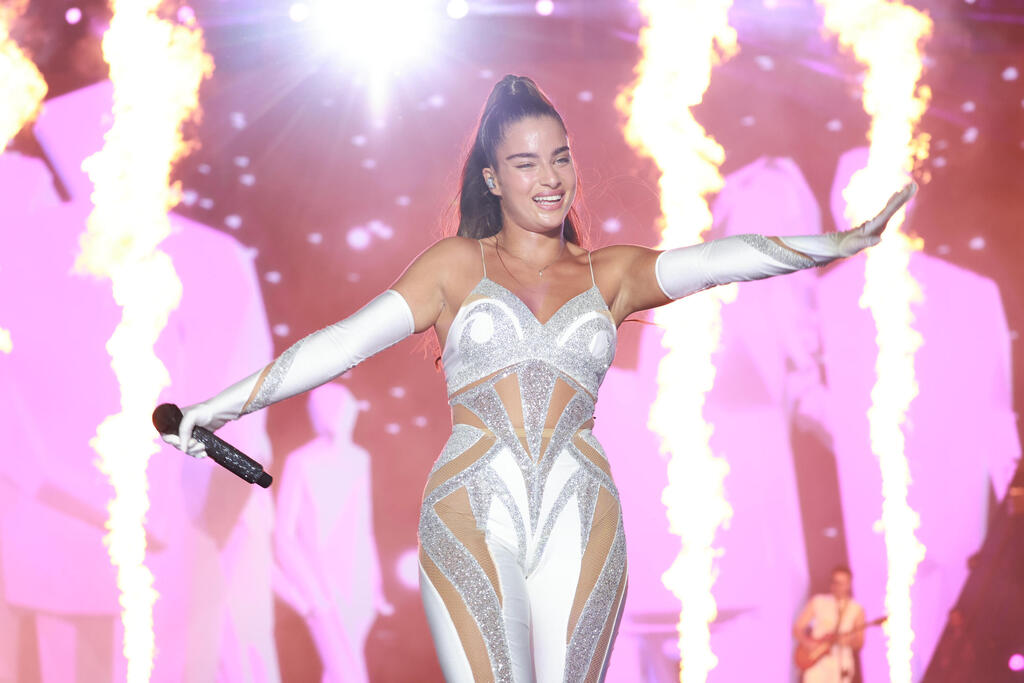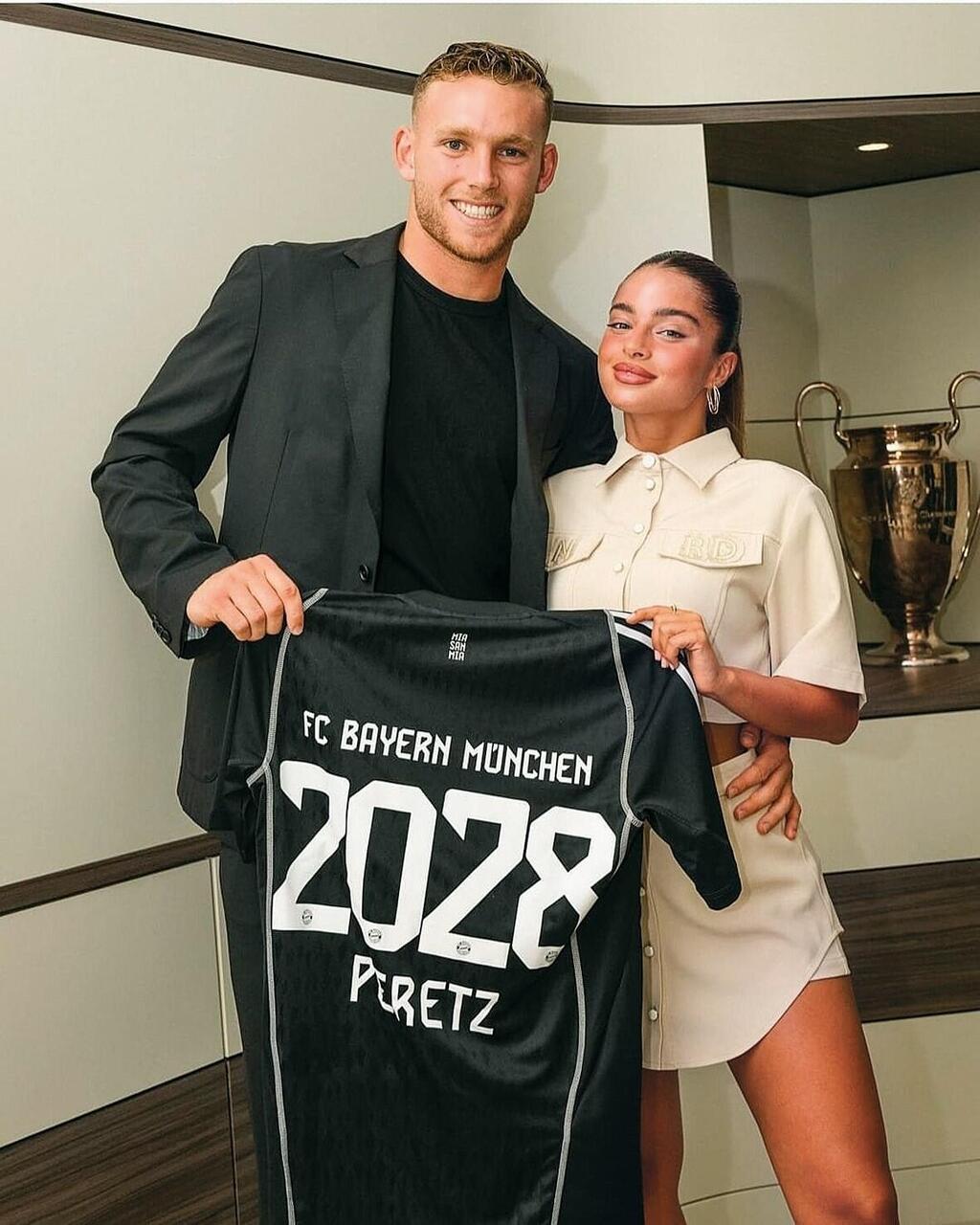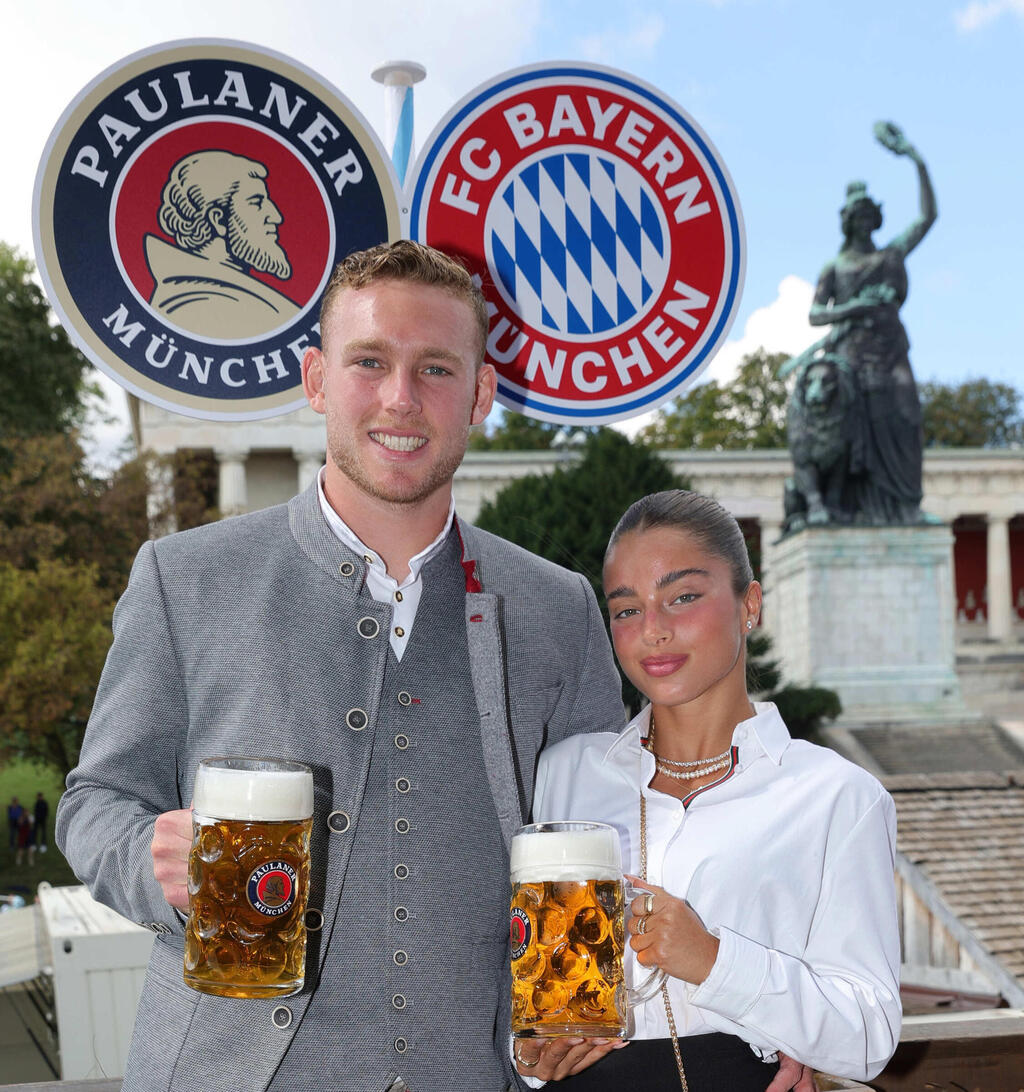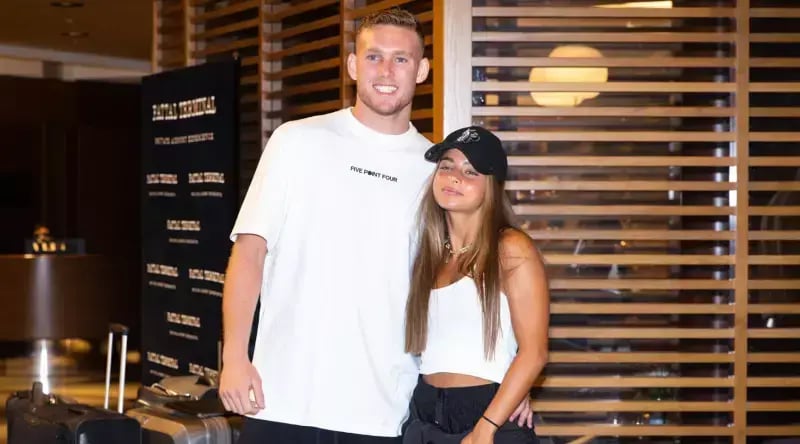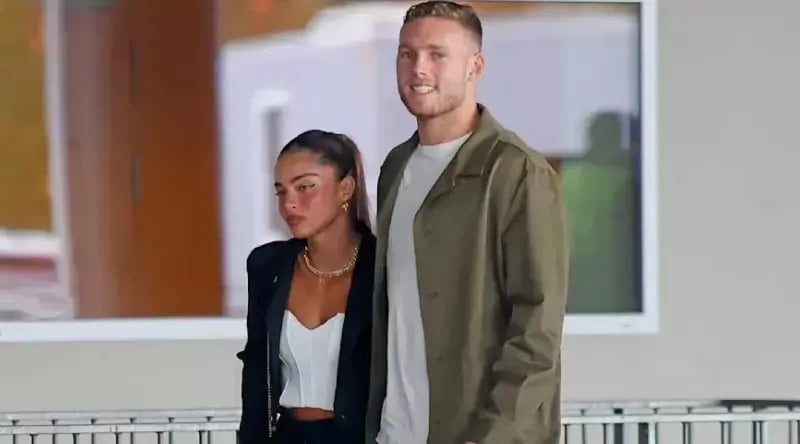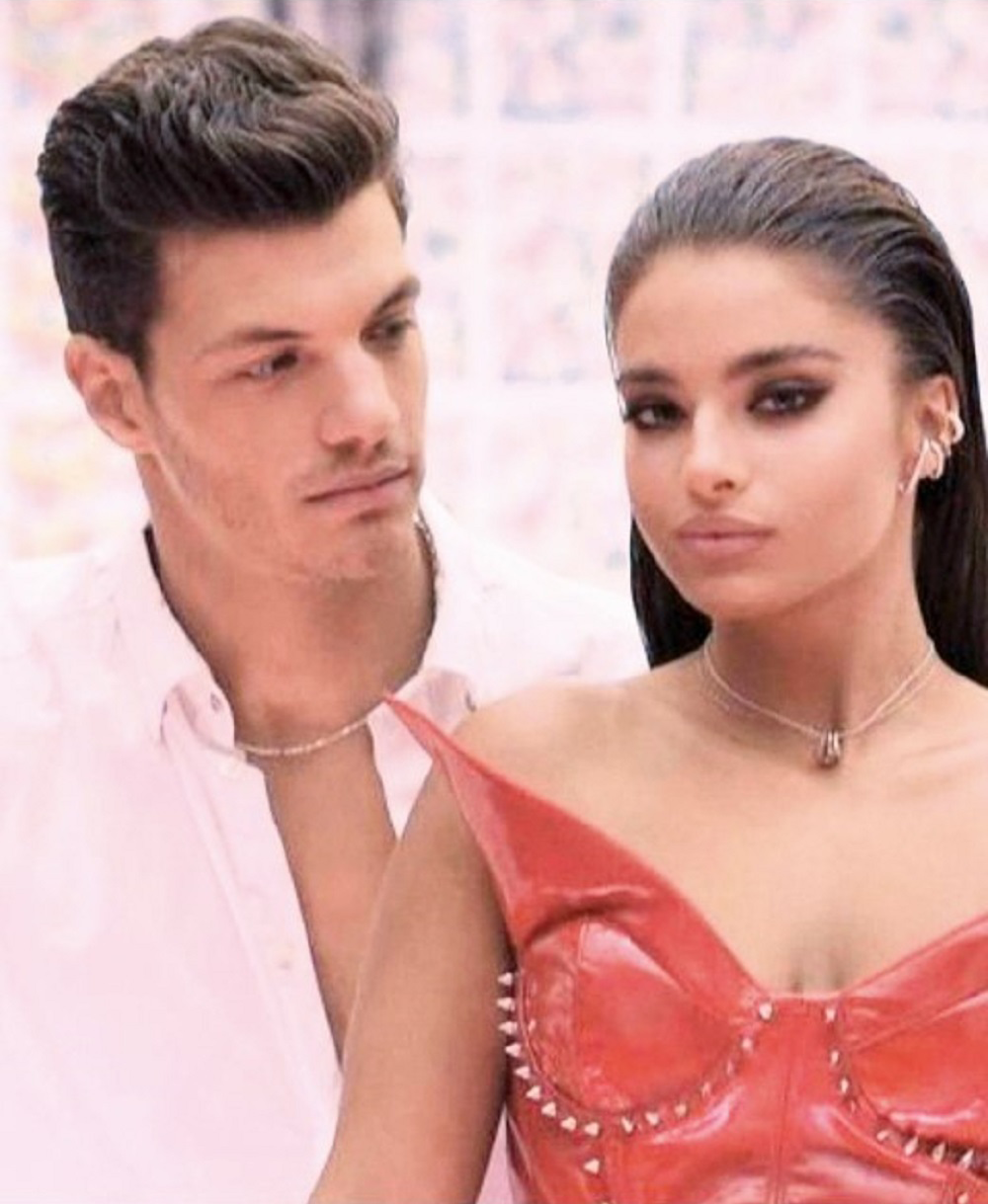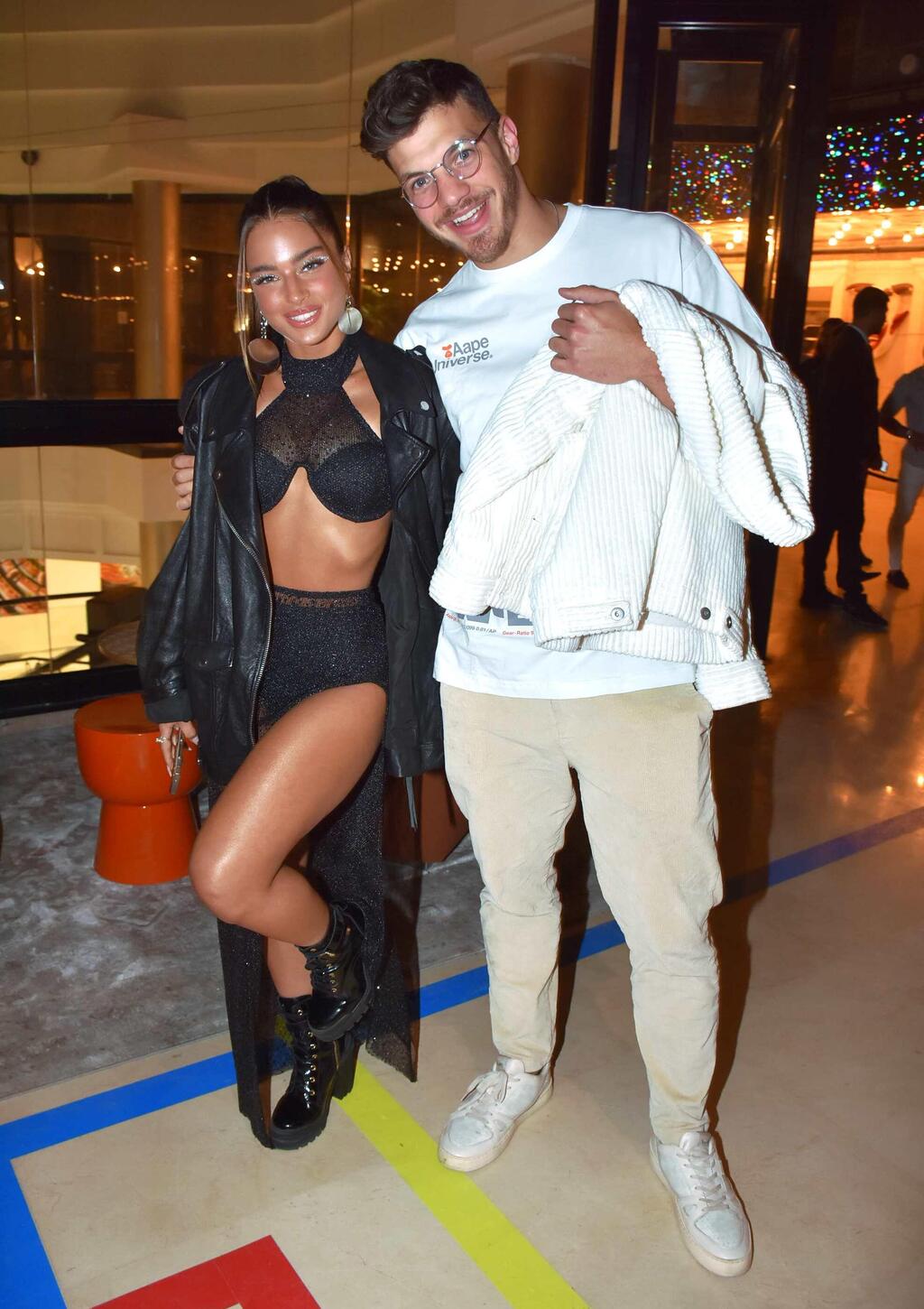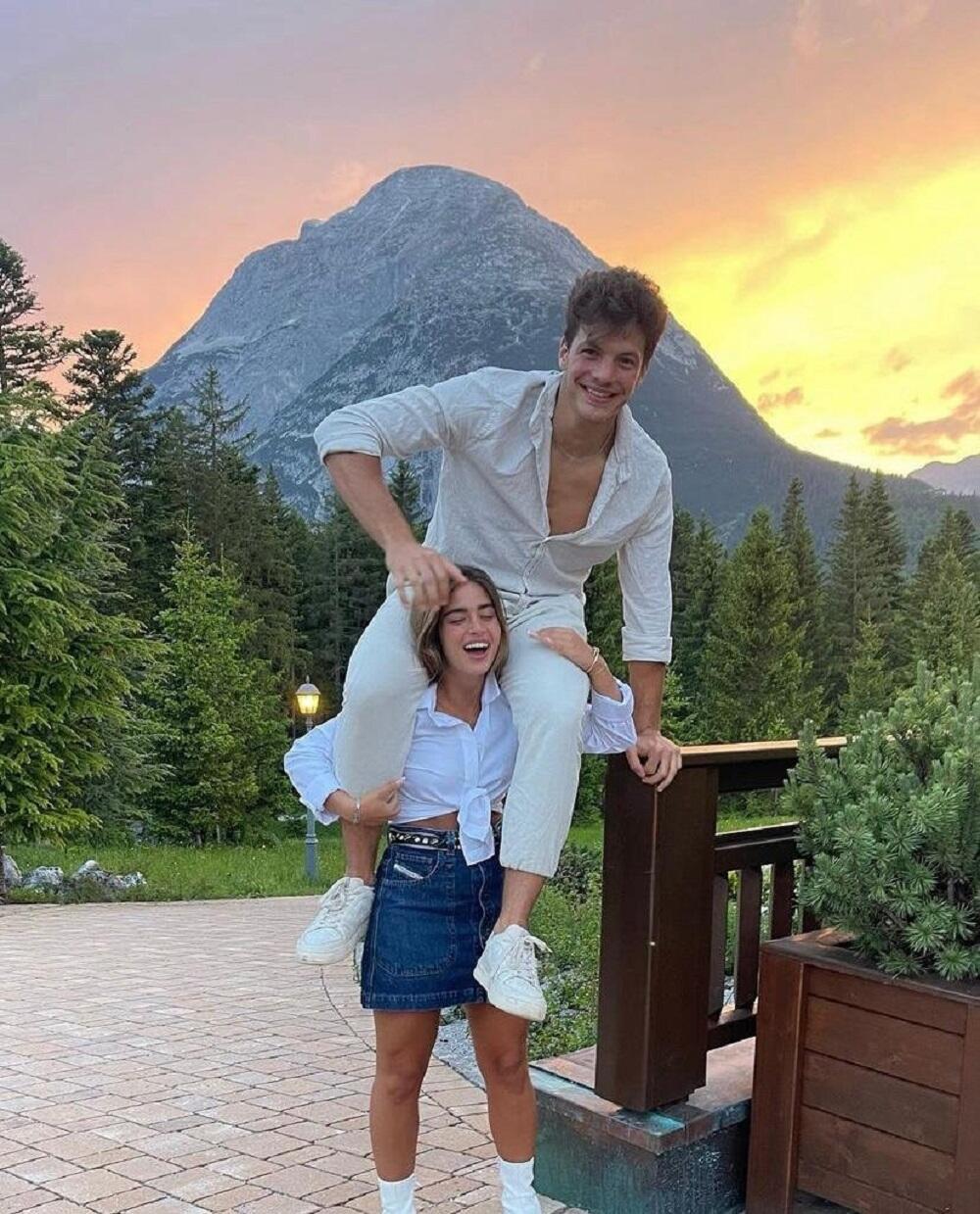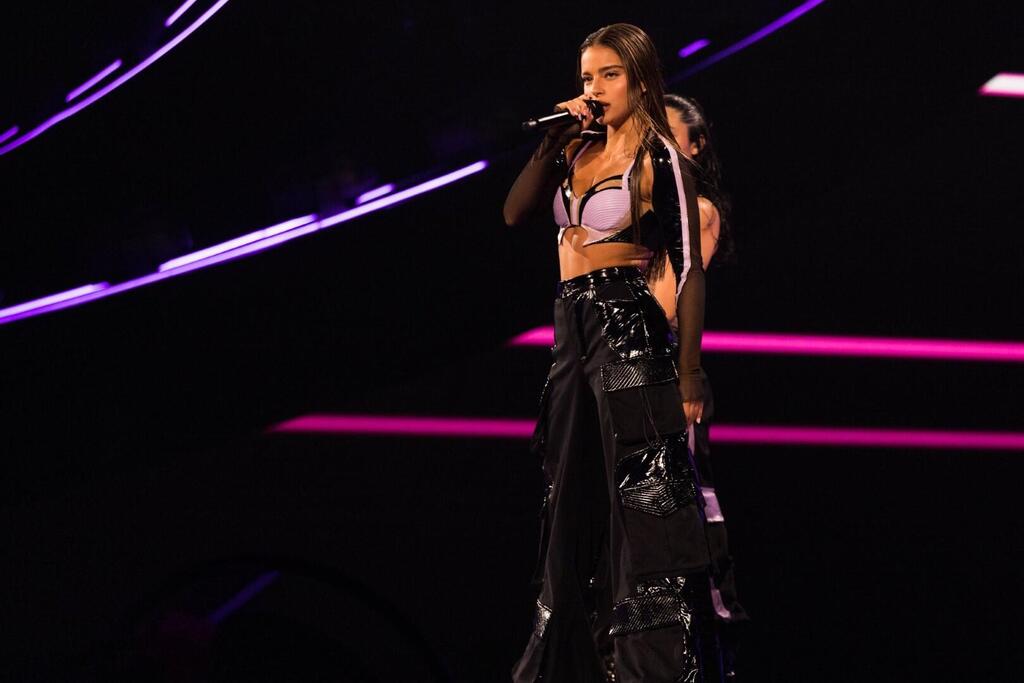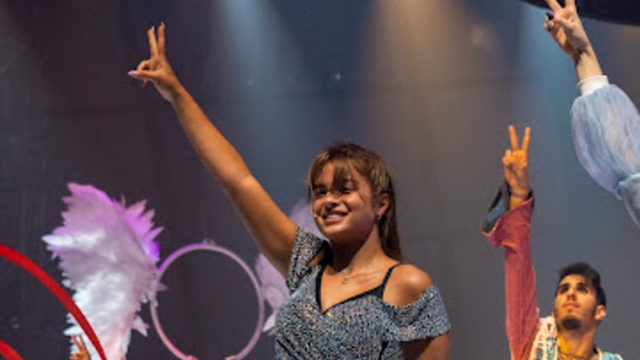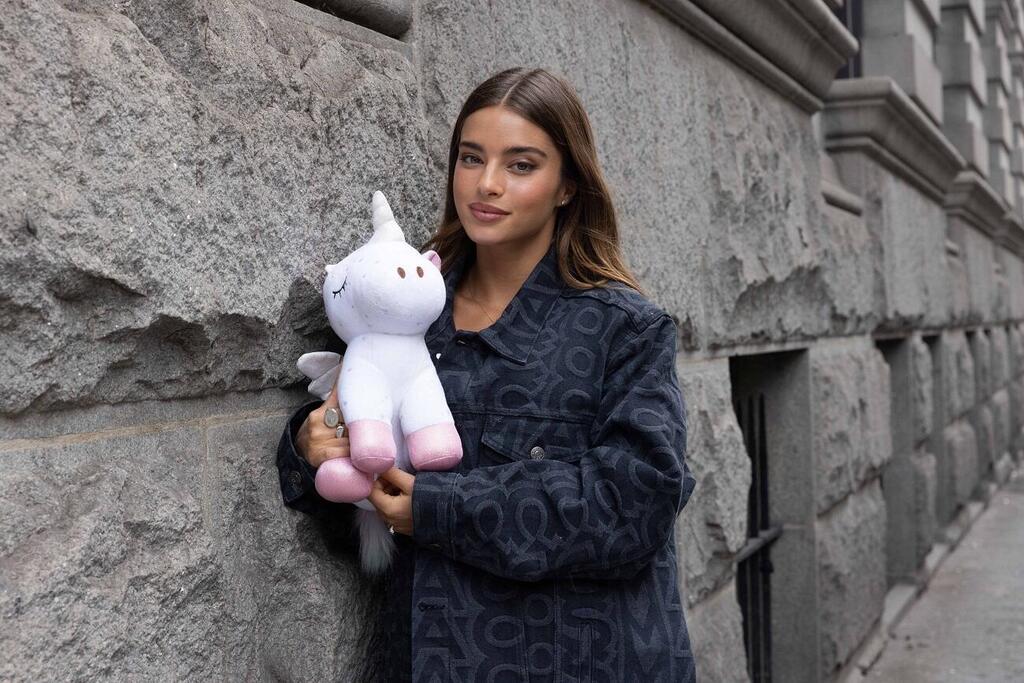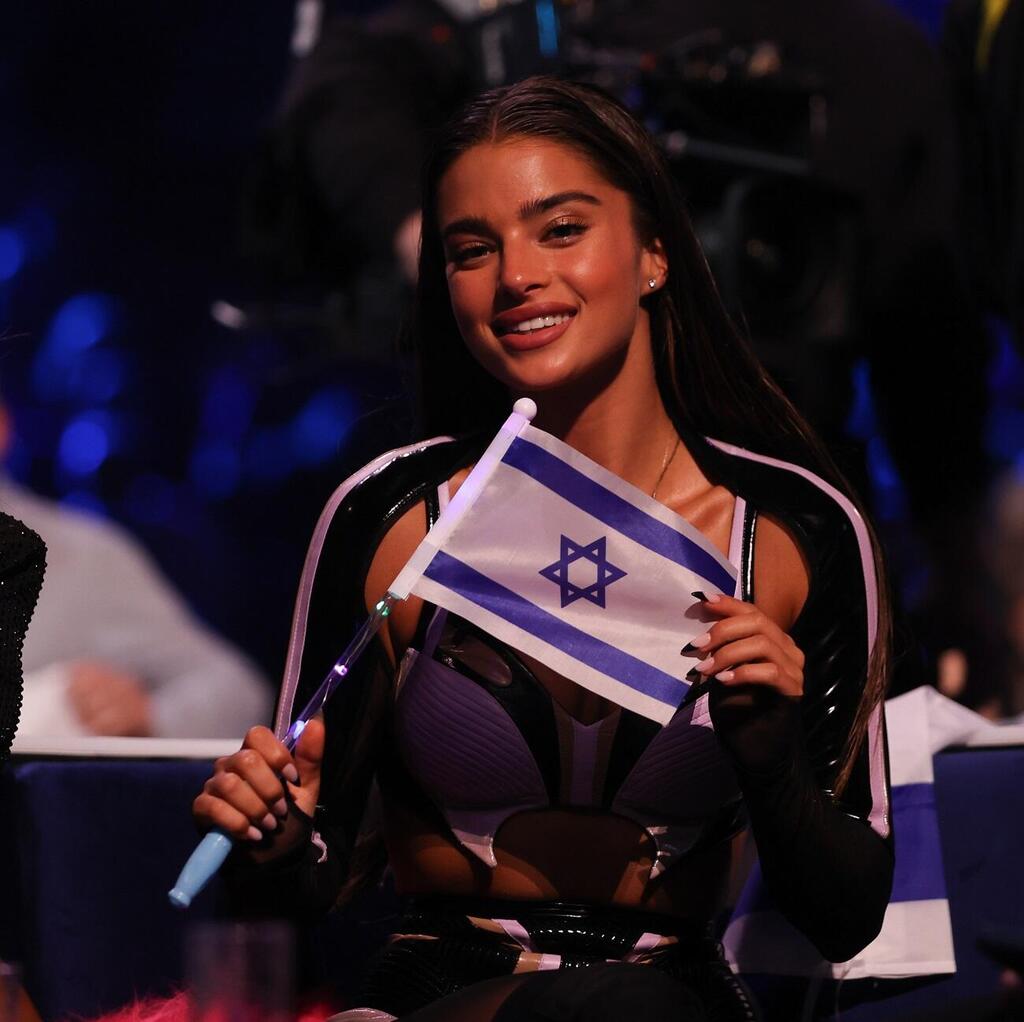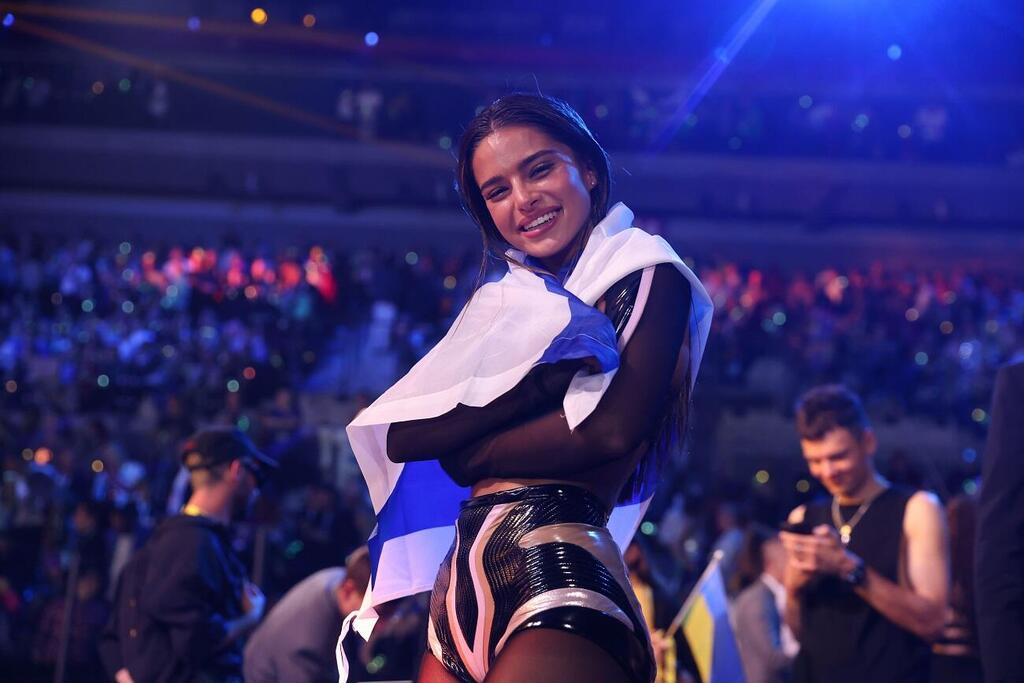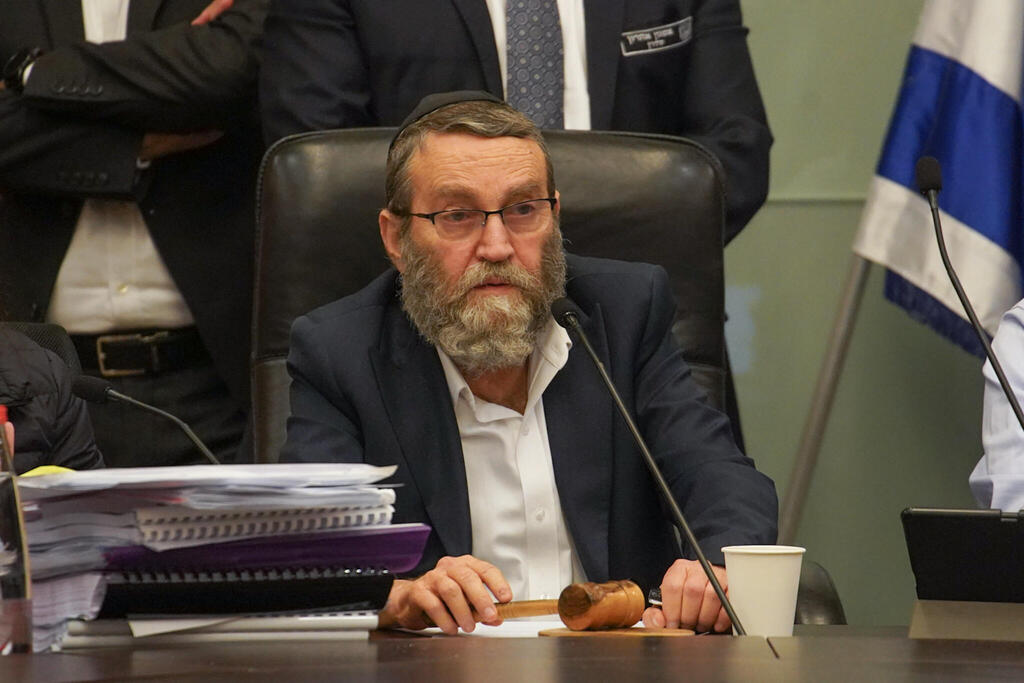Noa Kirel's life is changing at a pace even faster than the trophy-winning rate of soccer behemoth Bayern Munich. The Eurovision in Liverpool, which captivated an entire nation, feels like a distant memory even though it only ended last May.
Read more:
In the meantime, she has managed to sell out Tel Aviv's Yarkon Park twice, secure a performance at New York's Madison Square Garden (in late June 2024), return to an intense series of shows in Israel and dart between year-end events and parades to rake in awards.
On the personal front, she parted ways with one love, linked up with a new partner, and then traveled with him to Munich, only to find herself making major headlines in Germany. "It's been a whirlwind period," she reflects. "It's just crazy what happens sometimes."
Then there's the other side, one she's acutely aware of. Many in the Israeli entertainment industry are waiting around the corner for Noa Kirel, hoping for some significant misstep or a monumental downfall to remind us that she's human. Perhaps to suggest that the accolades came too soon or that her fame might soon fade.
Yet, as long as this doesn't manifest in her career—which only seems to grow stronger—the media spotlight turns to her personal life. There, surprisingly, even Kirel is revealed to be merely human. That's where pointed criticisms emerge, suggesting she hops from one relationship to another, leaving a trail of broken hearts in her wake, and even choosing her partners based on career interests.
So, when Kirel traveled with her new date, goalkeeper Daniel Peretz, straight to his signing with the German club, it presented a perfect opportunity for the online community to target her. "I can understand the optics of it at times, and it's okay that there are differing opinions; I accept them with love," she responds immediately. "But as long as I'm at peace with myself, why should I care? Raz, you know me a bit. You surely know what would happen if I let these things control me."
I suppose, but still?
"I could have easily said: I'm not flying with Daniel to Munich because people would say it's too soon. The thought crossed my mind, but it passed as quickly as it came because I don't decide based on what's expected of me but solely on how I feel. When Daniel suggested I travel with him to Munich and I saw how important it was to him that I come, I felt I had to do it. And you know what? What would have happened if I hadn't gone? Maybe the relationship wouldn't have lasted, or perhaps I would have deeply regretted not going?"
That's a valid point.
"I can't constantly think about what others will say. People forget that the pace of my life is fast. I woke up one morning last year, and they said, 'Hey, maybe you'll represent Israel at the Eurovision.' Before that, there was the park event. After Liverpool, I immediately went to perform at a bat mitzvah. Sometimes it feels like one day in my life equals a week in a regular person's life. My psychologist says, 'You can't be a panther in your career and a worm in your personal life.' And she's right. It doesn't work that way."
In other words?
"My career demands quick transitions. Moving from a massive stage in Europe to a bat mitzvah is a transition. At the beginning of the week, I went in one day to the ceremonies for Singer of the Year and Song of the Year awards, then to rehearsals, and from there to Big Brother. My transitions during the day are very swift, and just as it's in my career, it's reflected in my personal life. For some people, it might seem too fast."
The recurring claim was: It's a publicity stunt, orchestrated by your mutual agent Roberto Ben Shoshan, and it's beneficial for both of you.
"It's ridiculous. We constantly laugh about it too. I wouldn't waste my time on something that isn't genuine. There's no such thing, and I don't have the time. If I didn't feel it was right to fly to Munich with Daniel, even if it was in the early stages, I wouldn't have done it. But all of this happened because it's very genuine and comes from an emotional place."
The initial meeting with Kirel for this interview took place before the trip to Munich, when headlines were buzzing with her early encounters with Daniel Peretz, then still a goalkeeper for Maccabi Tel Aviv.
"Listen, I've known Daniel for almost five years, through mutual friends. He signed with Roberto's agency nearly two years ago. It turned out he was at my birthday party, and at events I hosted. When the news broke about a 'relationship,' I felt it was premature. Even when I spoke with you in August, I thought it was too early to announce something so significant.
“This is yet another example of headlines being created without asking for clarification. They manufactured a relationship headline about Daniel and me when there wasn't even a first date. I was at a Maccabi game; we met with many people, had dinner with Roberto and his manager together – and based on that, they reported a relationship."
When you're both just feeling things out.
"But what can you say about it? Think about how I feel when I suddenly read such things, and what Daniel must feel. People around us don’t know the truth. They read that she broke up, now she's in a relationship. They don’t get that none of this happened, and the situation becomes chaotic. And who takes all the heat? Me."
I assume that Tomer Cohen, your ex-boyfriend, read those headlines too.
"Tomer spoke to me about it, and I immediately clarified things for him. I told him it caught me off guard. I said I had nothing to hide or share because there really was nothing there. He said he was sure I would have told him, and that it was still hard for him to see such headlines. I told him it was hard for me too. Imagine people deciding something about your life that currently has no foundation. There wasn’t even a date."
But they guessed correctly.
"And how many things end up being incorrect? Even when we met last month, things weren't defined. I told you that yes, we know each other, and yes, you need to be brave and confident to ignore headlines, rumors and all that comes with it."
Was he brave enough to make the first move and ask you on a date?
"Yes."
Even as a goalkeeper, he's considered brave.
"Exactly."
And what goes through your mind after the first few dates, when the headlines, along with the pictures, already declare you two as a couple? It’s not normal, is it?
"I wasn't sure about many things myself. Look, my life is very planned out. I could wake up one day and hear my song playing on Simon Biles' floor routine, which is insane, but for the most part, everything is structured. You can't plan for love or relationships. You have to go with the flow and see where it takes or doesn't take you. When those headlines came out, I felt like I was at the beginning of something that could turn into a relationship, meaning we're going out, something is starting."
There's a chance he could become as big of a star as you.
"Who said that's a bad thing? It's fantastic. There's something fun about the other side pushing back, maybe even arranging a song for me somewhere."
The question is whether Germany will accept you after what you said about the Poles at Eurovision.
"Of course they will. I was a favorite of the German representative, who was with us at the hotel. Don't forget that I aim for international success at the highest level possible. It's a completely different realm, but I want whoever is with me to be highly successful. I don't think it can hurt if I'm aiming high and the person with me is also aiming high."
Did he discuss the Bayern Munich deal with you before signing?
"It was a delicate negotiation. The whole event and all those contacts were made public shortly after we had just met. It was intense. Comparing it to my own experiences, it reminded me of my long negotiations with Atlantic Records before they signed me. I understand the pressure of negotiating under such circumstances, waiting and grappling with something major. It was a stressful period for him."
Peretz officially signed with Bayern Munich on a five-year contract, and Kirel joined him. Of course, eyebrows were raised more than ever. "Somehow, the timing worked out. Just when Daniel signed with Bayern, my rehearsals were postponed, giving me a few days off. So, I could take some time for myself and be there for him. By the way, if I hadn't traveled with Daniel, people might have asked, 'What's going on? Is it not working out?'."
So what’s happening? It seems to be going well.
"Now I know much better, we both do. You saw for yourself; you met me when it wasn’t clear, and I said exactly that this is just the beginning, that I don’t know where it will lead. Now it’s clear that we are in a relationship. The trip to Munich brought us much closer. I feel happy, the relationship is good for both him and me. It feels right."
Is a long-distance relationship possible? He is now a resident of Munich for at least the next five seasons, according to the contract. And there's the Israel national team in between, if that’s any consolation.
"Yes, sometimes it can even contribute something to the relationship. I have my world, and Daniel has his. It can be very balanced. I fly a lot; it's part of my career, sometimes for longer periods (expected to move to New York for three months next year), so I'm familiar with long-distance relationships. I hope I can be at the national team's game at the Olympics in Paris."
How was it in Munich?
"It was a great experience to see all of this happening from the side. It’s very interesting for me to suddenly dive into a world like soccer, which I didn’t know before. Not just the game itself, but everything around it. We were very well received there; I felt immense pride."
What have you already learned about soccer that you didn't know?
"I feel a bit more familiar with the world, with the names."
Do you know the diamond formation, for instance?
She laughs. "We haven’t really talked tactics yet, but I’ve started to understand more. In Israel, I knew a few Maccabi Tel Aviv players. You know, I also find many parallels between our worlds: the crowd, the fans, the dedication, the diligence, the discipline, the training."
I know your father Amir is a fan of Maccabi Haifa.
"He told me he's a fan of Noa Kirel."
A lot of memes circulated online about your relationship.
"Yes, it’s hilarious. In my Panthera music video, I bounce a ball, so someone made a meme where I supposedly bounce it and he deflects it at the end. It's the funniest thing. That’s the kind of humor I love."
Always strong
The new relationship comes after she parted ways with her boyfriend, Tomer Hacohen, a model and actor, last July, after nearly two years together.
I saw you two in Liverpool. How does the cliché go? You looked like a sweet, lovely and united couple.
"It was really fun having him with me there. It was an intense experience, and it's not always 100% lovey-dovey and fun. It can be tough, and sometimes he felt like I wasn't there because I had so many commitments, interviews and rehearsals. It’s complicated. But overall, I'm glad he went through that experience with me because he'll never forget it. I was happy to share such a moment with him and grateful he was there for me and supported me."
And then you returned to Israel.
"It wasn't related to Eurovision, and obviously, there are challenging times in a relationship. Overall, there wasn't a dramatic event that led to the breakup, no specific trigger. We had differences. We're involved in entirely different things, and sometimes these differences are more conspicuous, sometimes less. They became a bit more prominent at that point, and I think that was the issue."
For example?
"It starts with basic daily stuff. I recognize that I'm unconventional, and that's tough. It's about handling and dealing with fame, the schedule and everything that comes with it. It begins there, and on top of that, the initial gap between our worlds was quite significant. Tomer had just started his studies. It's a totally different situation."
But in the end, both of you are from the Israeli cultural scene.
"In general, yes, but he didn't really engage with it on a daily basis. He delved into it more during our relationship."
Because it's a platform you provide to lesser-known partners. And to the better known too, actually.
"Yes, and it's not easy. When you’re famous, you’ll get asked about your relationships, and talk about it. Then the other half gets involved in the narrative. It's the downside when he speaks out. Suddenly, the relationship, something personal and private, becomes exposed. I'm interviewed and exposed to the media quite often. Let's say there are two actors in a series who are a couple. They aren't in front of the cameras and microphones as often as I am interviewed - so it doesn't weigh on the matter as much or at least much less. Because I have many projects and commitments, such things bring in cameras and microphones."
Part of the game.
"When I'm asked, I respond, but I try not to delve too much into private life. When the partner is in the picture and he's famous, he needs to do that as well. Then what's pure and personal becomes public – and that complicates things."
Did you talk about it?
"When we met, he was in the field, but not like this. It intensified over time, and you don't anticipate such changes. Suddenly, there are challenges you discover along the way. On the other hand, I would never tell someone to stop doing what they love or change their life. It simply added difficulty."
Deciding to break up. What happens behind the scenes in preparation for media matters?
"There isn't much planning, and I don't want to overthink it. Rumors just emerge because that's the nature of things. People start to notice some differences or issues between the couple. Sometimes, the news comes out even before the actual event. People also never truly know when it really happened."
In the end, you were together for almost two years, quite a while.
"I tend to be in long-term relationships; I'm serious about them."
In interviews, Tomer said that he was heartbroken, that he needed to mend the pieces, that he cried.
"I cried too. I was in the same situation. It's a tough process when your heart is broken, among other things. You get used to someone, and suddenly they're gone. It's hard. We even considered living together. People forget something else: if I'm post-breakup and being interviewed, and I don't delve too much into my personal life or the specifics of what happened, they say, 'She's emotionless.' But that's also part of my professionalism. There aren't many personal details left unknown about me. Tomer's approach was more about sharing with the media."
Didn't you like his approach?
"I respect his way because he's someone who likes to share. I assume that after the breakup, he struggled with societal expectations – what people would say and how they'd react. There's something about sharing everything openly; you usually get positive feedback."
On one hand, he appeared broken, while you seemed strong, moving on.
"It's always like that; I'm always portrayed as the strong one, and I'm okay with that because I am a strong person. But I will admit, it's tough for me. I might be going through a breakup and within a minute, I need to be interviewed, to smile, to be on set, to please everyone. And no one in the room genuinely cares that my heart is broken too, that I'm in a similar situation. Tomer had a few days to himself, but I didn't have that luxury. I had to act the opposite of how I felt and continue working as usual."
Where did you allow yourself to break down and release your pain?
"At the end of the day, at home, in my space, that's where I'd let myself fall apart. But it was with me all the time. I just had to be professional. I'd tell myself, 'everyone is here for you.' It's the hardest switch to make in the world, but you just do it."
Do you sometimes hold back tears?
"Yes, I do. And knowing there's an entire set waiting for me."
Are you still in touch with Tomer?
"Not as much now, but we were in contact when everything became public. He said lovely things about me and spoke very kindly. It was important for both of us to end things on a good note."
I should also note from the other side that it's not something uncommon for someone around the age of 22.
"True. People forget that, at the end of the day, I'm a 22-year-old girl going through breakups, meeting people and having relationships, just like any other 22-year-old. I'm living as a young woman, and these are normal experiences. Everyone should think for a moment about what they were doing at that age."
Safe ground
Kirel’s two shows at Yarkon Park were in high demand as the first show sold out within hours, and the second soon followed, meaning the singer performed in front of more than 100,000 people in total. These are, in essence, Coldplay-in-Israel kind of numbers.
"It's crazy. I didn't know ahead of time that I'd be doing two shows. When the ticket sales started and there was a queue and people were waiting, I realized something extraordinary was about to happen. Selling so many tickets in just four hours? This is by far the largest audience I have ever performed in front of."
In the end, how does it feel to be Noa Kirel amid all this madness?
"I'm busy with work all day. If I had more free time, maybe I'd think more about it, or go crazy or I don't know. I'm still seeing a shrink and it's ongoing. You talk to me about the park and I know there will be a lot of people. It's not like it's not on my mind. But on a daily basis, I wake up in the morning and sit with my team to discuss what's going to be on stage, so I don't delve too deep into contemplating the significance. It truly doesn't seem like something I can fully grasp or digest."
Alright. Two park shows also mean a nice financial gain.
"I hadn't even thought about that. Money isn't my main motivator. I'm excited that it sold out, but I'm not doing a park show just for the money. Last year, I didn't profit from it at all, and it was important for me to put on a 'wow' performance. I still live with my parents, so maybe if I lived alone, it would matter more to me. Roberto would probably be happier if I was more interested in it. Maybe I'd be in double the ad campaigns then."
Can you afford to spend time on that?
"Not really. We mostly say no."
What special offers have you received following Eurovision?
"Mainly for performances in Europe. But not every offer seems right to me, and I won't just go anywhere. What surprised me the most is being recognized abroad. I took a two-day vacation in Cyprus and at times couldn't even walk on the street. I went to a shopping mall with friends there, and I couldn't get around. I've been to Europe quite a bit since then and was also surprised when people asked to take pictures with me on the street."
So, you're back at the Festigal (a popular Hanukkah musical for children). Why do you need this, exactly?
"I just really wanted to. It was my request. They offered, and I told Roberto that I really wanted to because it has a social aspect that I don't often experience, with other artists I like and very good friends. Overall, the Festigal is a wild experience, behind the scenes, performing every night, I really enjoy it there."
But you've done it, you've been there before.
"Look, when I committed to the Festigal, I was pre-Eurovision. I didn't know what would happen, and I wanted to ensure a safe ground to return to. Also, I want to maintain a good connection with the younger audience. It's important to me."
You ranked second on the list of best creators this past year, just after Naomi Shemer. In other words, you’re the leading living artist on the radio.
“You know, it's insane to be on the same list as Naomi Shemer, first and foremost. This recognition as a creator is one of the most fulfilling and important things that have happened in my career. A lot of the time, people write about personal lives—being seen here, photographed with that person. Then suddenly, such a pure professional recognition comes along. I felt proud; I felt like I accomplished something."
But there's another side to it.
"No surprise there.”
In response to the publication, comments read: "How can you place Noa Kirel on the same list as Naomi Shemer? Where have we come to?"
"Listen, these are figures from ACUM (Israeli Society of Authors, Composers, and Music Publishers)? No one made them up. What can we do?"
I think they also mean that you collaborate in creation. There's a team of writers, and you don't exclusively write your songs.
"Anyone familiar with the industry knows that's how it works today. True, at the beginning of my journey, I sang songs that others wrote for me. But I became increasingly involved in the creative process. There isn't a song today that I'm not involved in, either in lyrics or melody. It rarely happens otherwise. Some people don’t like it? What can I say, that's okay too. I've gotten used to it. Still, I'm proud to see my name up on that list."
National icon
One night in Liverpool, just before the recent Eurovision in May, Kirel faced challenges. One of the stage fans refused to work, and there were additional sound issues that clouded her thoughts.
"I encountered situations in Liverpool I wasn't familiar with," she recalls. "Typically, artists wouldn't directly approach the production team to make requests. I simply spoke with the head producer of Eurovision, did a little research to know who she was, where she came from and what exactly she was responsible for. No other artist went to that area, but then again, we're Israelis."
How did you approach her?
"It wasn't straightforward. She handles the show's logistics, and our team had made several requests to turn on the fan at a very specific timing during the number, and to adjust something in the sound. For some reason, it wasn't addressed straight away. I told myself that if I approached the producer, she'd be so unused to the 'artist' directly speaking to her that she would feel compelled to fix the issue.
I told her, 'You need to help me. My entire country is concerned about the fan and the sound. I need your help.' Of course, I was exaggerating a bit. She was lovely and later posted a picture with me. It's part of the job. If I need to speak with the top people responsible, I'll do it. But these are the less glamorous moments until the number takes the stage."
Then, during the critical judges' rehearsal, the zipper didn't open on stage.
"Yet, somehow it worked out, as in the feed they received, they didn't notice."
You can't tell me you weren't stressed about it.
She shakes her head in despair. "Not stressed? Oh, I told myself on stage that even if I have to die with these pants, I don't care. With the pants, without them, I was going for it. My instinct in that moment surprised me. What I did was simply gesture to the dancer to skip the first move and jump straight to mine. I have no idea how I thought of that. My heart dropped. But there's nothing you can do; you just have to keep going."
And after you got off stage? Is it considered a disaster or do you just move on?
"In that moment, I realized I had to calm everyone down because there was definitely tension. Especially when the dancer, to whom this had happened, took it very hard and cried. I understood that if I showed her how it affected us, she would be devastated and find it hard to continue, feeling guilty. The first thing I did was to reassure everyone. I said, 'I'm not worried at all. Our vocals were very good, and I was satisfied with how I sang.’ The fact is we ranked quite high after that rehearsal."
Four months later, can you say how Eurovision has affected your career?
"In so many ways, whether on a personal level, in the way I dealt with this task and proved to myself that I could do it. It's the biggest thing I've done in my career, more in terms of the immense pressure, because beyond performing in front of all of Europe, it was representing the country. The exposure was insane. Everything that happened on social media was different for me compared to every other contestant. I couldn’t walk down the street in Liverpool. Everywhere I went, a lot of people came up to me."
Any breakdown moments?
"There were no low moments because I was prepared for every scenario. There are more complicated moments. For example, the first rehearsal was a disaster, and you didn’t see that one. There are stand-ins who do placements on stage before the delegations arrive; you get a video afterward and say, ‘Oh no, this is bad,’ and it's stressful. Then, there are a lot of adjustments. There was nothing too bad."
We were in a sensitive situation. Missiles on Israel, alarms, an operation.
"The situation intensified the pressure on us. When it started, I was supposed to have a call with the prime minister to congratulate me on reaching the semifinals, and then they told me, 'No call.' I didn’t even know an operation was underway. I wasn’t following the news. Suddenly, in the hotel, I saw a lot of Israeli media waiting for answers about something I wasn’t even aware of. Eurovision is like a bubble; you don’t read anything outside of what’s happening in Eurovision itself."
I know you a bit, you don't see anything other than first place. Weren't you a bit disappointed coming back?
"Not at all, not even a little. That's my truth, one hundred percent."
Are you still in touch with the winner, Loreen from Sweden?
"We spoke a few times, but there wasn't a deep connection. She was more reserved, very much to herself. I stayed in touch with the Norwegian contestant."
Kirel was a big star even before Eurovision. She could have faltered — it's happened to more seasoned performers on that stage — but she came back even stronger in the Israeli entertainment industry. She became a sort of national icon, a go-to name for conversations with the president, prime minister or the culture minister.
"I don't want to sound arrogant, but this time, the comments went beyond just praising my looks or representation; they were about my personality and what came across."
Being a national symbol comes with limitations.
"Okay, like what?"
For instance, always having to act stately and kindly, even when you don't feel like it or when you're sad.
"I've always been patient and loving with my audience. I know how things work. It's a matter of character, regardless of the career level you're at. This was true for me even when people didn't know who I was, from performing in malls up to the Eurovision level. And that will always remain with me."
You can't get drunk in a bar because someone might take pictures.
"If I want to get drunk with friends, I'll do it in more private settings, and even then, I won't lose control."
Another limitation: people criticize your attire more. For example, MK Moshe Gafni offered to donate clothes to you.
"It's his right to say what he wants, and I genuinely believe that. As long as I'm comfortable with what I'm doing, it's totally fine for him to comment. Everyone is entitled to express themselves."
On the other hand, there are women who perhaps expected you to respond to Gafni in a more feminist manner.
"But my response empowers them as well, meaning everyone should express their opinion and wear what they want."
I think you're being cautious with Gafni because you want to maintain a stately demeanor.
"But if I'm comfortable with what I'm doing, why should I care about what others say?"
But there's a difference between a music critic and Gafni in the Knesset.
"People in the Knesset have been talking about me since day one. When I was 14, they called on [Prime Minister Benjamin Netanyahu] to 'stop this phenomenon'. I think a certain lawmaker led that. What haven't I gone through? It's not like I'm not used to such things. Many people publish things that aren't entirely accurate. There's been a recent trend where people don't even verify; they just turn it into a headline right away."
Can you give an example? What annoyed you?
"There are many instances, mostly gossip stuff. For instance, once I was returning on a flight with friends and I sat at the back of the plane. When the crew realized I was onboard, they played my song Unicorn and mentioned my presence over the loudspeakers as a kind gesture. However, this alerted everyone on the plane to my presence, causing a significant delay during deboarding.
“Later, it was reported that I held up the flight! But I didn't ask them to play my song or announce my presence. I could have suggested that I get off the plane first to avoid chaos, but I didn't even do that. To say I requested to leave first and delayed the entire plane? That never happened. And there are many such cases where events were reported inaccurately."
Recently, Kirel has been assigned security, not something new, but it raised questions if there were potential threats or issues, particularly related to staff changes in her team.
"There are times when artists have security or a bodyguard with them. We're going through a complex period with many changes and situations. You doesn't need to feel threatened to have security around. There are times when I just want to feel safer. In recent months, I've been traveling to many places, meeting many people, attending numerous events in various cities. I feel more secure having a bodyguard with me."
Was there a specific threat?
"No. I've never felt unsafe, and I'm never alone."
What about Roberto?
"There were personal matters that we can't delve into right now. But it's better to be safe."



